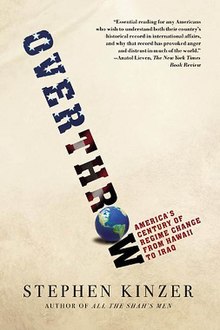|
TRANSLATE THIS ARTICLE
Integral World: Exploring Theories of Everything
An independent forum for a critical discussion of the integral philosophy of Ken Wilber
  Jeff Meyerhoff, M.A., L.S.W. is the author of "Bald Ambition: A Critique of Ken Wilber's Theory of Everything" and other essays on integral theory. He majored in economics and sociology and has studied philosophy, psychology, politics and spirituality. He's been employed as a social worker for the last 25 years. His weekly radio show, "The Ruminator," is archived at www.wmfo.org. His blog is www.philosophyautobiography.blogspot.com and his email is [email protected]. Jeff Meyerhoff, M.A., L.S.W. is the author of "Bald Ambition: A Critique of Ken Wilber's Theory of Everything" and other essays on integral theory. He majored in economics and sociology and has studied philosophy, psychology, politics and spirituality. He's been employed as a social worker for the last 25 years. His weekly radio show, "The Ruminator," is archived at www.wmfo.org. His blog is www.philosophyautobiography.blogspot.com and his email is [email protected].Security for All!A Reply to Brad ReynoldsJeff Meyerhoff
Just as we should respect the security concerns of European states, to be minimally fair we should understand Russian concerns too.
Brad Reynolds responded with two comments appended to my essay “A Context for Survival: The US, Russia and Ukraine” on Integral World. Reynolds bases his counterargument on a glaring but common contradiction. He rightly documents the threat that Russia poses to Europe and the U.S., but contradictorily doesn't acknowledge the threat that the U.S. and Europe poses towards Russia. I contend consistently that both sides can claim a credible threat from the other and so fairness and consistency demands solutions that accept this reality if we are to foster the coordinated internationalism both Reynolds and I advocate. The realist political analysis I use of the recent Ukraine, Russia and US events consistently asserts that, like the Eastern and Western European countries and the US, the Russians can credibly perceive a threat from the US and NATO. So in contrast to Reynolds's claim, I do acknowledge in my essay the perceived threat to Eastern Europeans but, unlike Reynolds, likewise acknowledge the threat that Russia perceives from the US and NATO. Reynolds focuses exclusively on the threat from Russia by listing its past aggressive actions towards its neighbors. But I, as well as the foreign policy experts I cite, know that history of Russian aggression very well and incorporate it into our account. The difference between us is that Reynolds minimizes the older Soviet's and newer Russia's understandable perceptions of threat that they feel from the US and NATO. He minimizes that threat by using the dominant rationalization that the US, a military and economic giant compared to Russia, intends to do good in the world but sometimes makes mistakes. But a recounting of US aggressions as they are credibly perceived by Russia, and in much of the world, presents a different story. Remember, I recount this US story of aggression not to get into the old unproductive who-is-worse-Russia-or-US? debate, but to argue that just as the countries of Eastern and Western Europe and the U.S. have understandable security concerns due to the history of Russian aggression recounted by Reynolds, so too does Russia. And just as we should respect the security concerns of European states, as Reynolds and the mainstream US view advocates, to be minimally fair we should understand Russian concerns too. But Reynolds and the US government and mainstream media do not want to recognize Russian concerns and in order not to recognize their understandable concerns he and they minimize US and NATO aggressions. But the historical US-NATO death toll and destruction caused by them, often near or on Russia's borders, is orders of magnitude greater than the results of Russian aggression that Reynolds and the US say we should take as evidence of the Russian threat. But if the level of aggression due to Russian actions is rightly thought to create understandable fear in Western nations shouldn't a far greater death toll and destruction committed by the U.S. and NATO in their wars of choice cause an even greater fear in Russia that should be taken into account when formulating fair international policies? This basic fact of each nation's security concerns is central to the realist analysis of international relations of the more than twenty-five foreign policy experts I reference in my essay, and is what allowed them to repeatedly predict over the last thirty years the Russia-Ukraine war we now witness.[1] Unlike the US, but similar to Europe, Russia was invaded in WWII and lost 27 million citizens. This amounted to 14.2% of their population. As a comparison the US lost 0.3% of its population in WWII and, except for Pearl Harbor, its landmass was not breached.[2] Russia also watched as the U.S. committed the most massive act of state terrorism ever committed by intentionally targeting the civilian populations of Hiroshima and Nagasaki, becoming the only nation to ever use nuclear weapons. The two leading explanations for this act of mass terrorism in foreign policy circles is that it was to save American lives and send a message to the Soviets. Russia also witnessed near their borders with Japan and Germany the far more destructive intentional Allied fire-bombing of the civilian populations of German and Japanese cities, estimated to have killed, at the low estimate, 800 million people.[3] The direct targeting of civilians also occurred in the US's devastation of North Korea[4] and Southeast Asia; the conservative standard estimate of Southeast Asian deaths being 1.5 million.[5] 
Numerous US interventions and overthrows of democratically elected governments from 1950 to 1990 followed as catalogued by former New York Times reporter Stephen Kinzer in his aptly named book Overthrow.[6] In a recent study, Boston University political science professor Lindsey O-Rourke documented and analyzed sixty-four US covert attempts at regime change in the Cold War era.[7] Post-1990 the US chose to expand NATO, founded explicitly as an anti-Soviet/Russian alliance, eastward towards Russia adding 23 nations[8] intentionally eschewing other less militaristic alternatives documented by M.E. Sarotte[9] in my essay. Pressing its enormous military and economic advantages the U.S. then bombed Serbia very near Russia's border. After 9-11 the US expanded its own and NATO's aggressive role attacking and overthrowing the governments of Afghanistan, Iraq and Libya, to name the most prominent aggressions. It's the hubris of the US that these invasions, occurring close to Russia, should not be perceived as threatening by Russia. The Brown University Costs of War Project assesses that these US and/or NATO aggressions of the last twenty years resulted in the deaths of 900,000 and cost $8 trillion.[10] So over the last twenty years while Vladimir Putin has been in power, NATO, the anti-Russian and now newly aggressive alliance, has continually expanded eastward to the Russian border, ignoring repeated Russian warnings about it being a threat to its survival when other options for security and EU integration were available and dismissed. Additionally, the US, sometimes with NATO expanded its mandate to invading and overthrowing governments outside of Europe. It's difficult to see how a country like Russia, designated as an enemy by the US, could not perceive these aggressive actions as a potential security threat, in the same way the US would perceive them were the situation reversed. Again, I need to repeat because the Western ideological blinders are so narrow, this recounting is not done to get into a tit-for-tat argument about whether Russia's or the US's foreign policy is more destructive. Each side can enumerate the other sides willfully committed horrors. It is to show that just as European countries and the U.S. have credible security concerns regarding Russia because of its violent attacks on neighboring countries, so too does Russia have legitimate security concerns regarding the US and NATO. And it is these security concerns, expressed repeatedly and well within the standard rules of spheres of influence that the US itself asserts and enforces, that should be applied if we want to be fair and respect the perspectives of all sides. Yet the current standard mainstream US view is that Russian concerns should not even be discussed, while US and European concerns are paramount, well-known and exclusively considered.[11] This attitude is directly counter to the kind of internationalism that Reynolds and I advocate and, if continued, will hasten greater climate destruction and increased chances of nuclear devastation.[12] So unlike Reynolds I advocate a multipolar compromise that respects the security concerns of all parties to the conflict. This view is backed by some of the most respected and credentialed Western foreign policy analysts whose correct predictions, starting in the early 1990s, of the present belligerence were overruled by the dominant neoconservative US militarism when other security options were available as documented by our current best study on the subject Not One Inch: America, Russia, and the Making of Post-Cold War Stalemate.
Endnotes[1] These 25 foreign policy experts who I use to represent the realist view in international relations Reynolds dismisses as “some selected professor's opinions” even though they include three former US ambassadors to Russia, the current U.S. CIA director, and twenty working US diplomats. A small indicator of Reynolds's strained efforts at evidence avoidance. [2] "This Chart Shows The Astounding Devastation Of World War II", www.businessinsider.com [3] "Air raids on Japan", en.wikipedia.org [4] “It was 64 years ago that North Koreans emerged from this war into a living nightmare, after three years of “rain and ruin” by the US air force. Pyongyang had been razed to the ground, with the Air Force stating in official documents that the North's cities suffered greater damage than German and Japanese cities firebombed during World War II.” Bruce Cummings Dean of Korean War scholars. "Americans once carpet-bombed North Korea. It's time to remember that past", www.theguardian.com [5] "Vietnam War casualties", en.wikipedia.org [6] "Overthrow (book)", en.wikipedia.org [7] Lindsey O-Rourke, Covert Regime Change: America's Secret Cold War. 2018. “The dataset reveals that the United States pursued a remarkable number of regime changes during the Cold War (1947-89) and that the vast majority of these interventions were conducted covertly—sixty-four covert interventions compared to six overt ones. Twenty-five of America's covert operations saw a US-backed government assume power, whereas the remaining thirty-nine failed to achieve that goal. As table 1.1 indicates, these missions targeted all types of states: adversaries and allies, powerful and weak, democratic and authoritarian, communist and capitalist alike. In many cases, US-backed forces squared off against Soviet-backed adversaries.” p. 2 “Regime change is not, however, just a Cold War phenomenon. On the contrary, each American administration in the post-Cold War era has embraced regime change, intervening overtly and covertly in places such as Haiti (1994), Afghanistan (2001), Iraq (2003), Libya (2011), and Syria (2012). This preference for regime change seems un- likely to change anytime soon. p.2. [8] “NATO has not stopped expanding since the fall of the Soviet Union, growing from 17 countries in 1990 to 30 today, several of which were once part of the Soviet-led Warsaw pact.”, "Did NATO 'betray' Russia by expanding to the East?", www.france24.com [9] M.E. Sarotte, Not One Inch: America, Russia, and the Making of Post-Cold War Stalemate, 2022. [10] According to the summary from the Brown University Cost of War Project:
[11] Pulitzer Prize winning journalist Glenn Greenwald reports on the drastic reactions that even mention of the Russian perception elicits in the US mainstream: "Greenwald: Romney's "Treason" Smear of Tulsi Gabbard is False and Noxious, But Now Typifies U.S. Discourse", www.scheerpost.com [12] Anatol Lieven is one of the most knowledgeable foreign policy analysts specializing in Russia's relations to the nations on its borders. His book arguing the thesis of my original essay is Climate Change and the Nation State, "Climate Change and the Nation State", global.oup.com
|